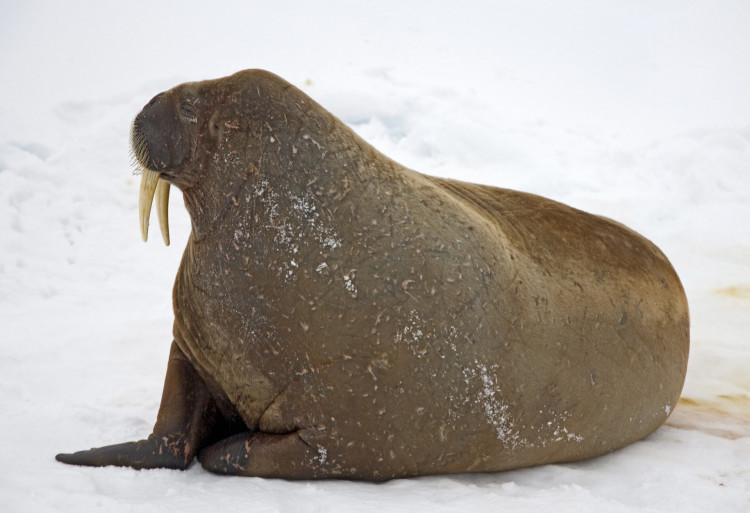A team of conservationists plans to search for walruses from space, but they will need the participation of volunteer "walrus detectives" to do it.
The World Wildlife Fund (WWF) and the British Antarctic Survey (BAS) have launched a new program, according to Smithsonian Magazine. The research endeavor has been called "Walrus from Space" by the organizations; it is already operational.
The project seeks to attract 500,000 citizen scientists to assist in the development of a walrus census. Researchers are focusing on the Atlantic walrus and the Laptev Sea walrus.
"Assessing walrus populations by traditional methods is very difficult as they live in extremely remote areas, spend much of their time on the sea ice and move around a lot," Hannah Cubaynes, a research associate at British Antarctic Survey, said in a press release from WWF.
"However, doing that for all the Atlantic and Laptev walrus will take huge amounts of imagery, too much for a single scientist or small team, so we need help from thousands of citizen scientists to help us learn more about this iconic animal."
In order to evaluate their walrus counting and identification skills, aspiring walrus detectives will watch a tutorial and take a quiz. Then, from their own computers, they'll examine high-resolution satellite photographs of the beefy, blubbery animals.
The data they provide will help to explain how climate change is affecting this iconic Arctic species. Data from WWF reveals 13% of the Arctic's summer sea ice disappears every decade. The loss of sea ice is especially harmful to Atlantic walruses, who rely on it to rest and give birth to their young.
Among other things, melting sea ice caused by climate change forces walruses to congregate on land rather than ice. Their journeys between the ocean and land become longer and more difficult, requiring them to expend more precious energy. Furthermore, as herds of hundreds or thousands of walruses smush together, the beaches quickly become overcrowded.
Because walruses are particularly sensitive, overcrowding can also result in stampedes. When these behemoths become agitated and stampede towards the water, others, particularly newborn calves, can be trampled in their haste.
If you want to be a walrus detective, you can start your cosmic walrus adventure here. This is a journey that could be useful as scientists investigate walrus populations and the effects of climate change on them.





